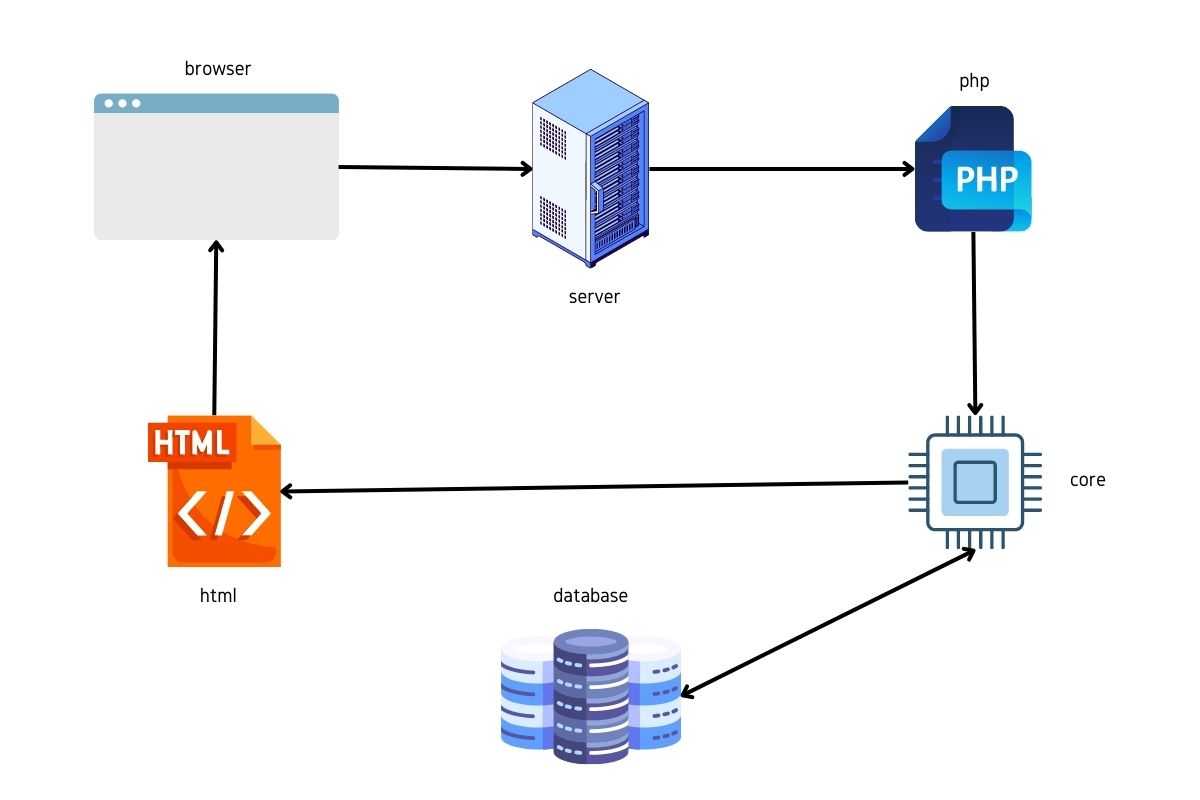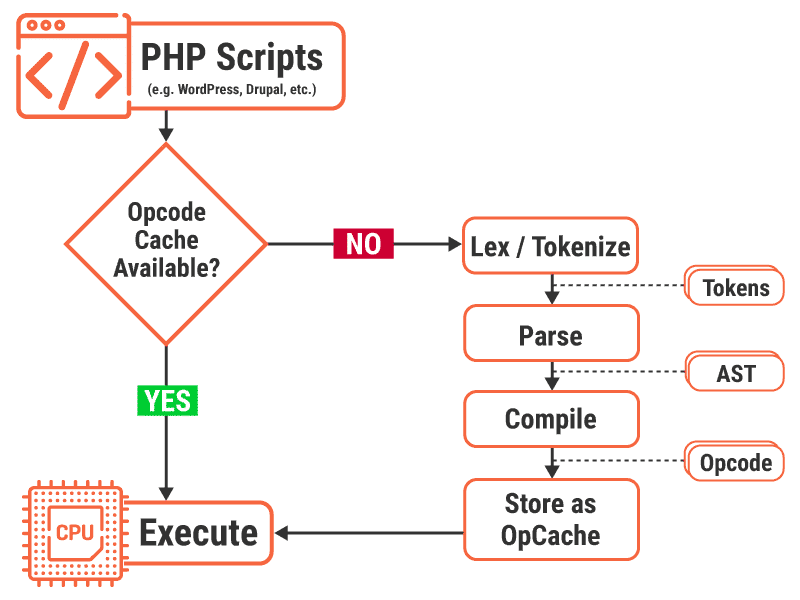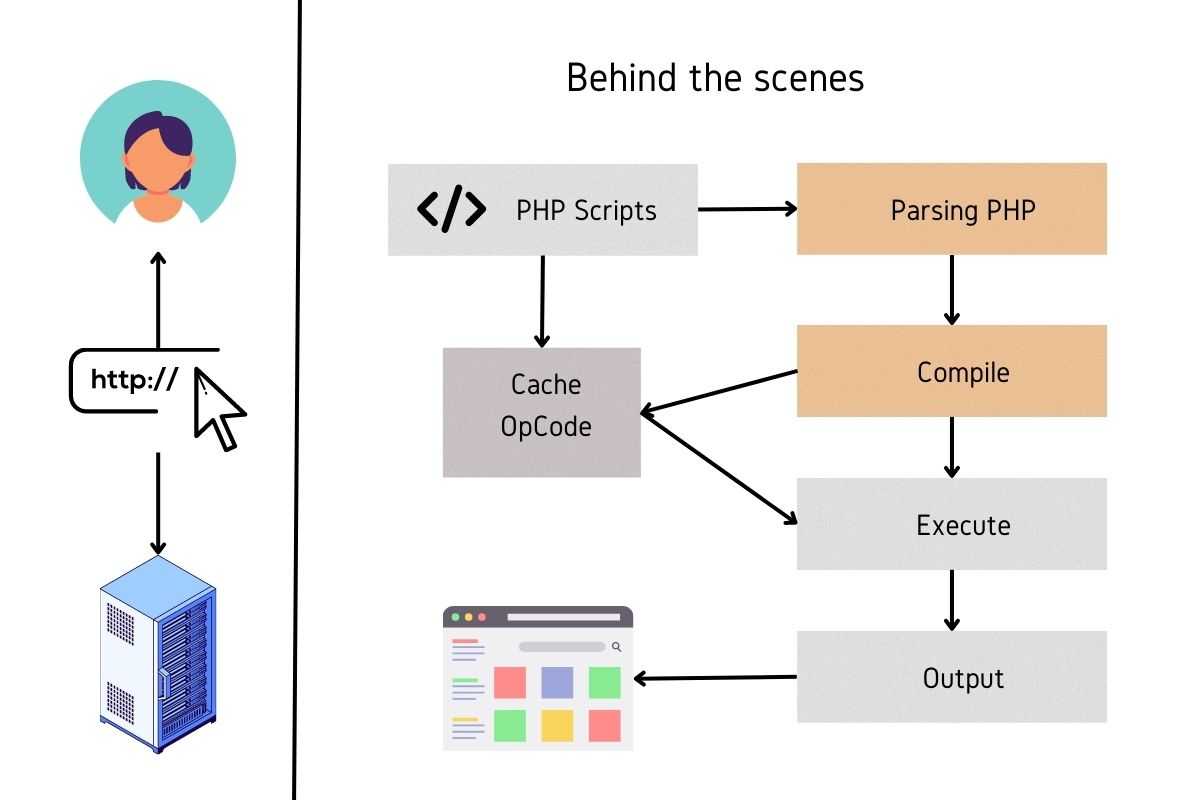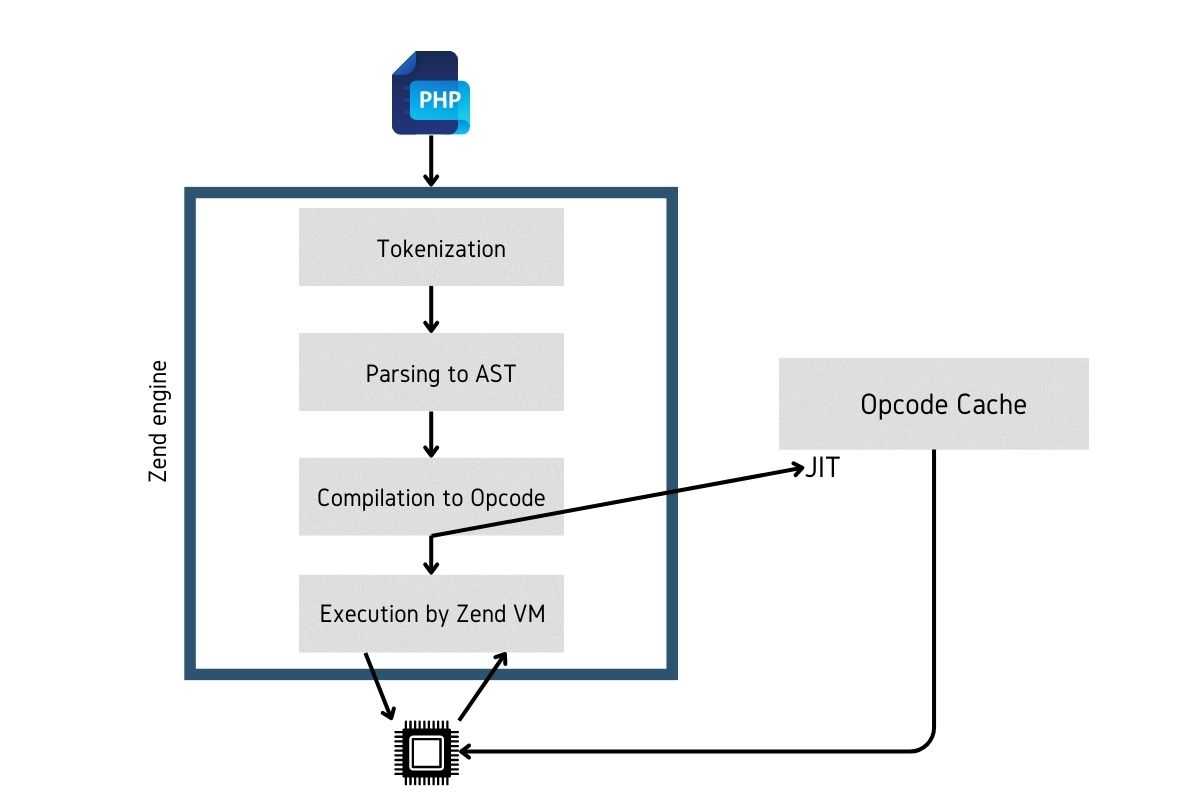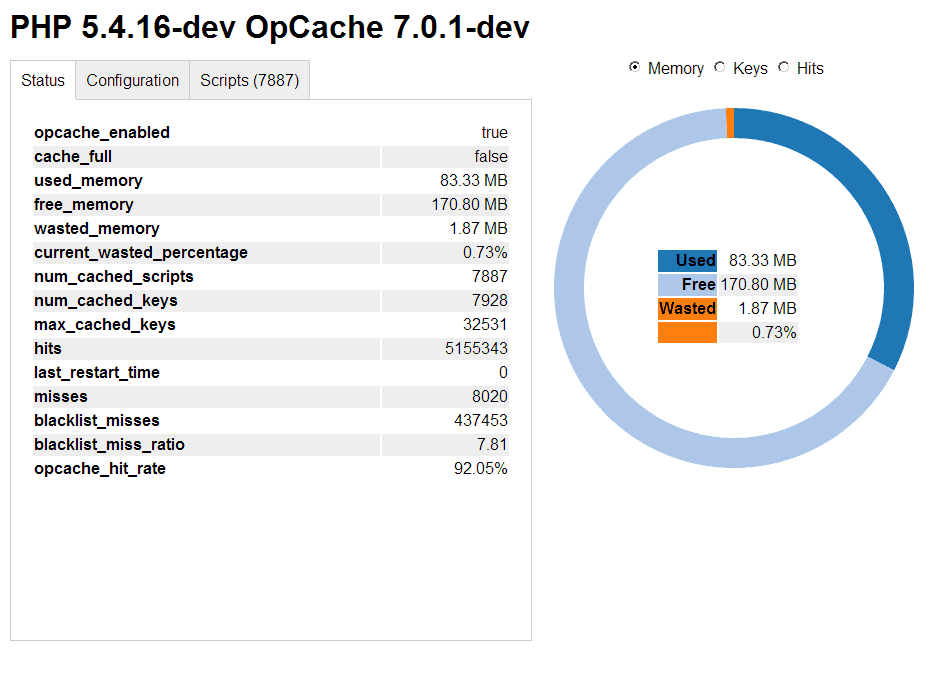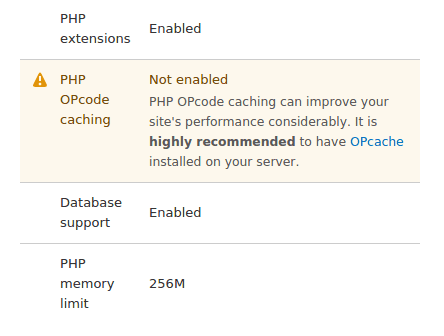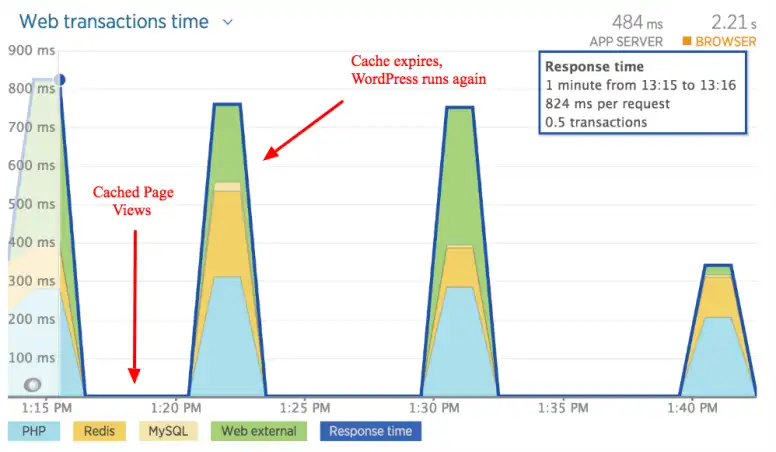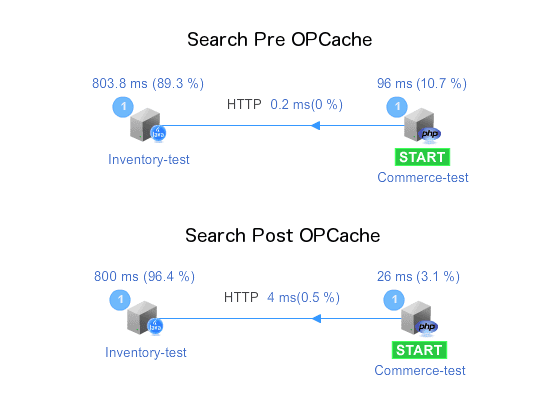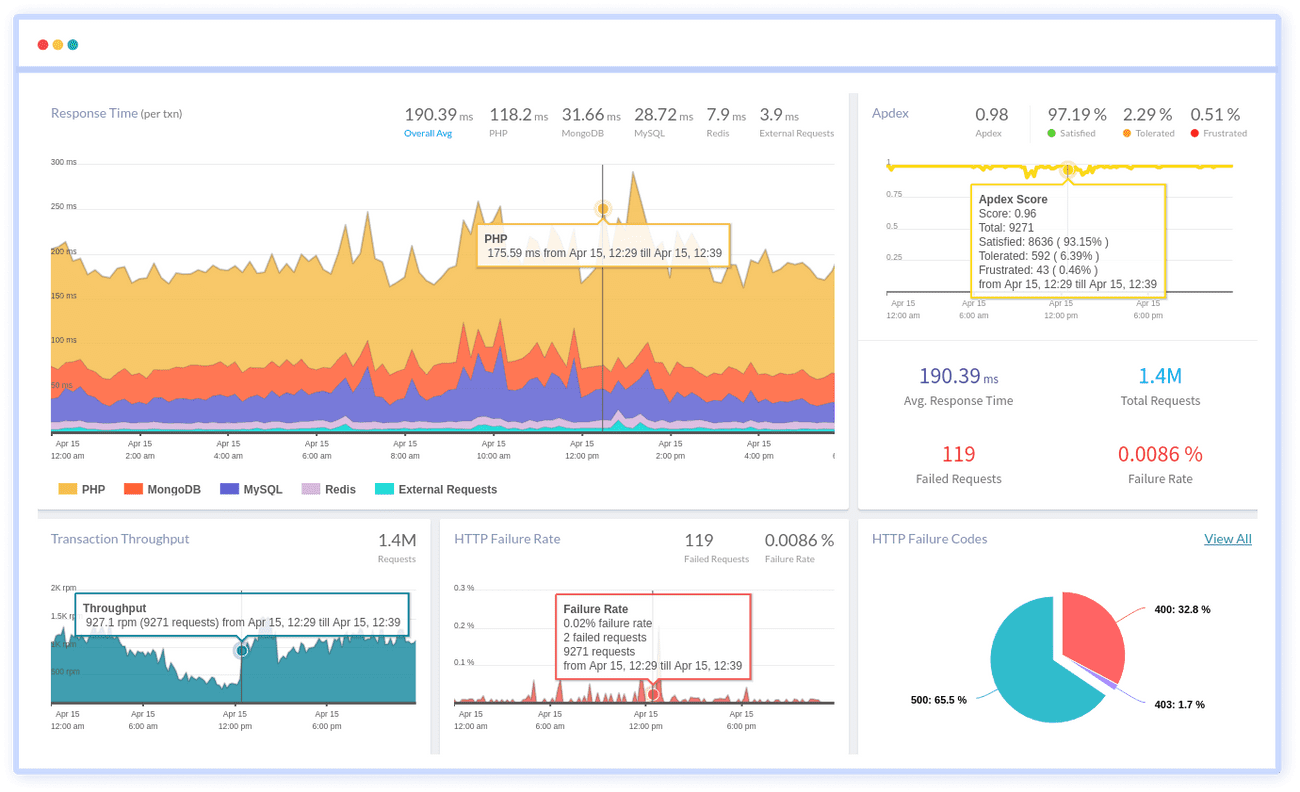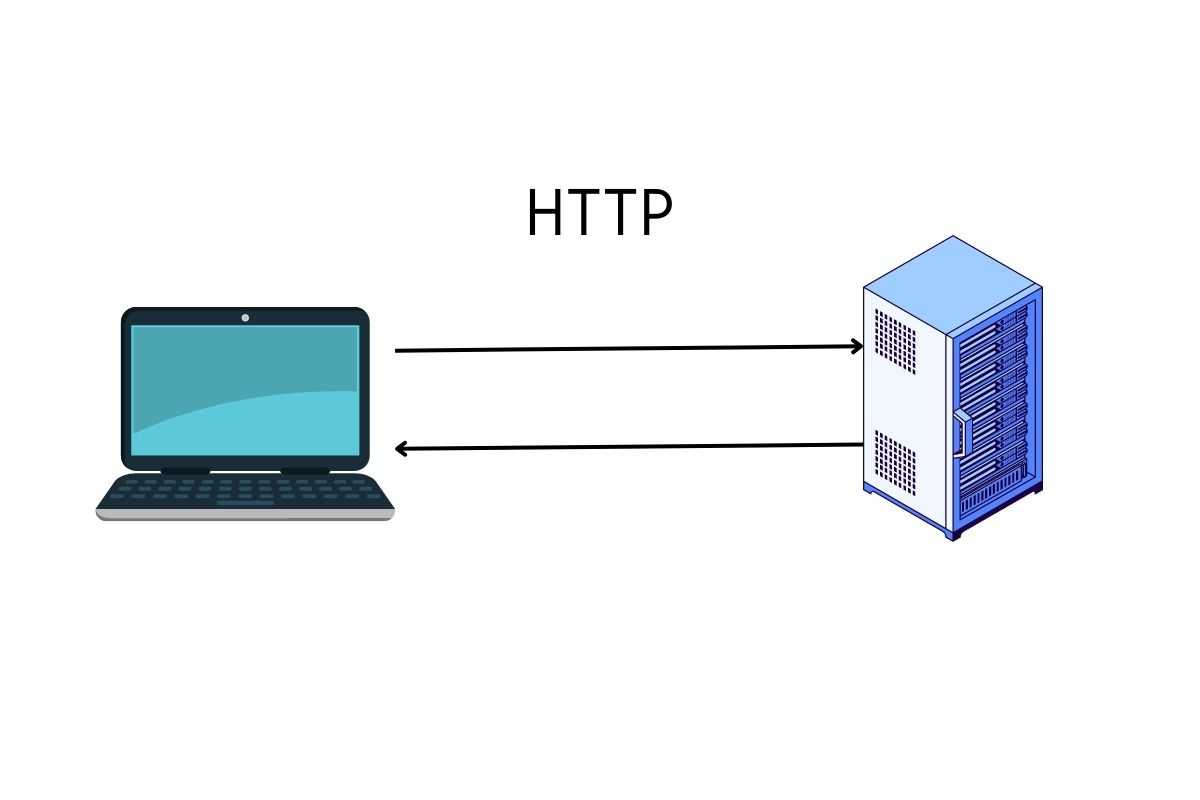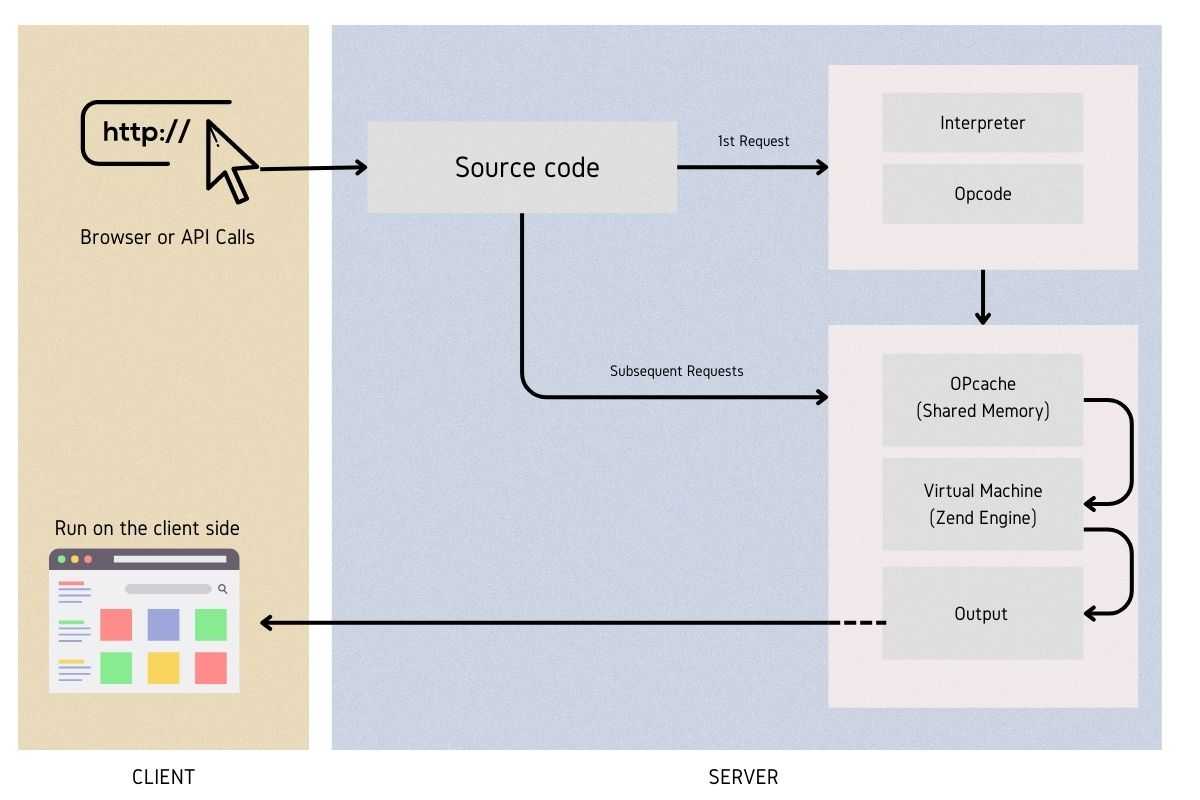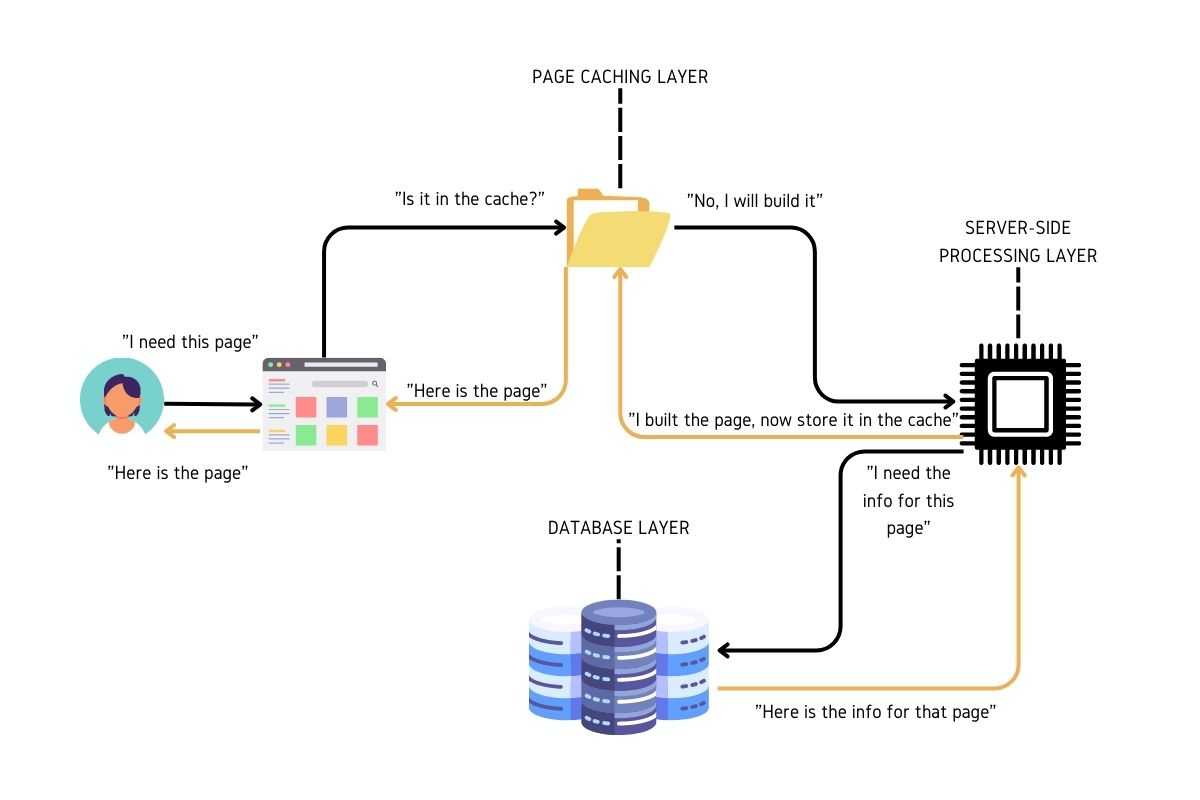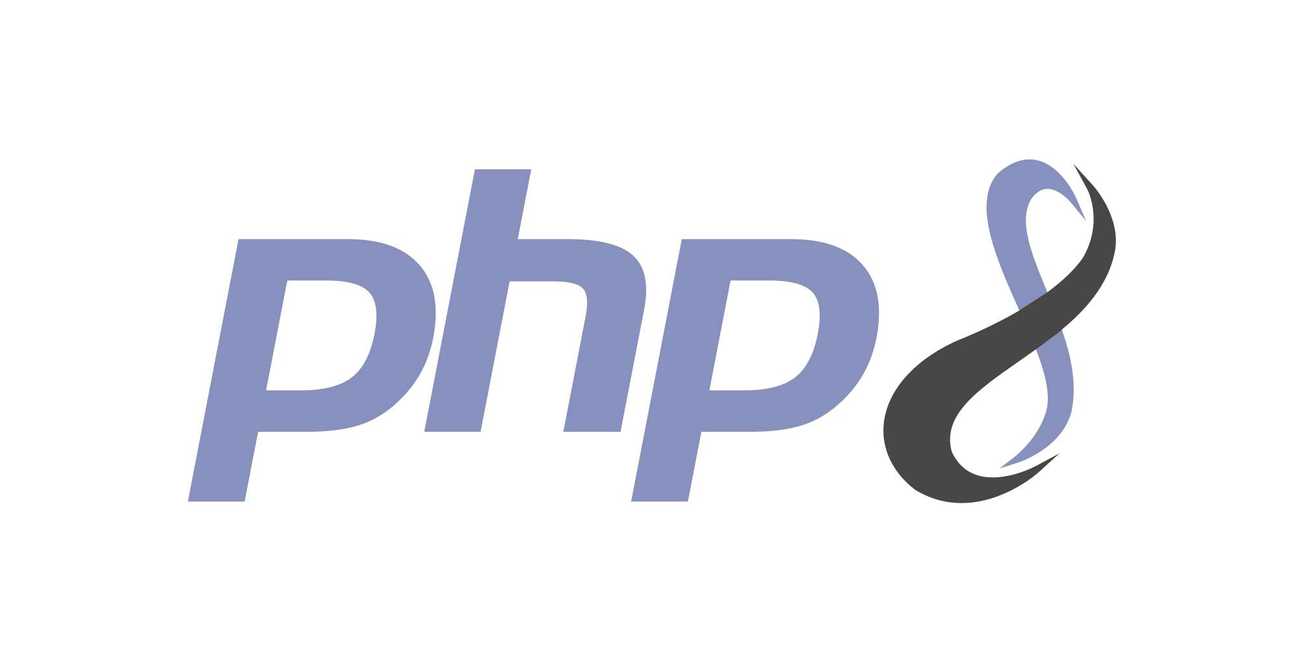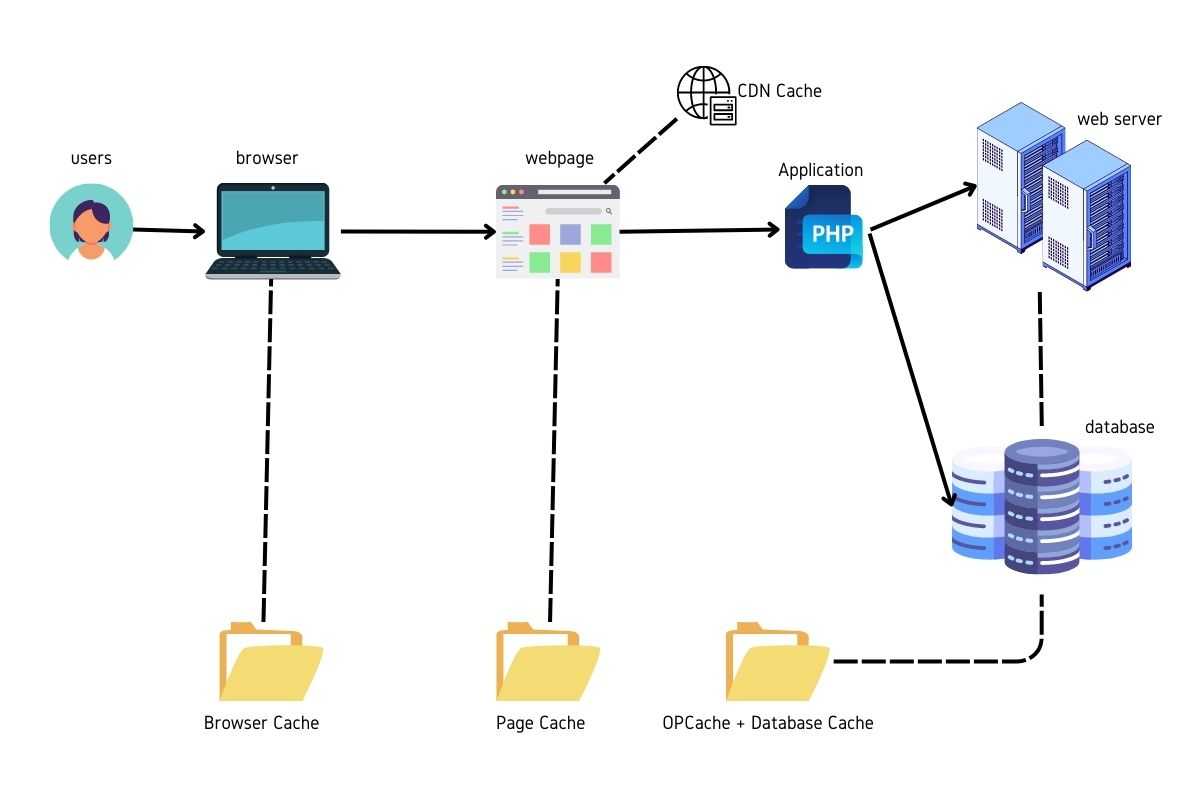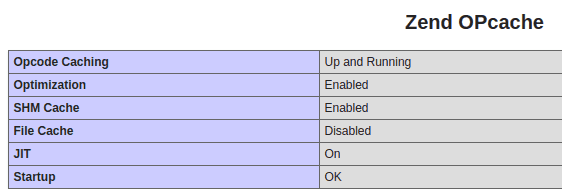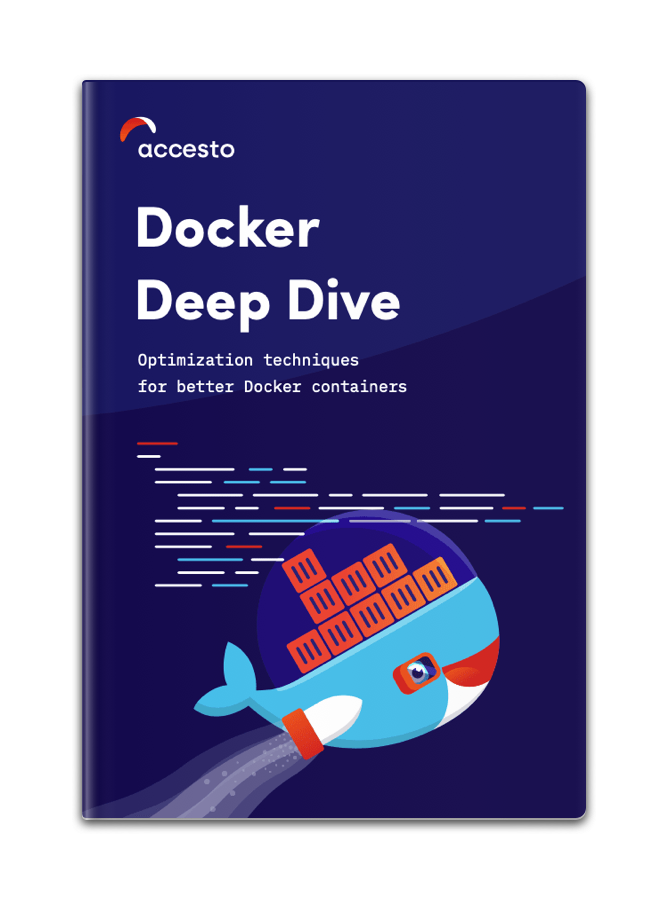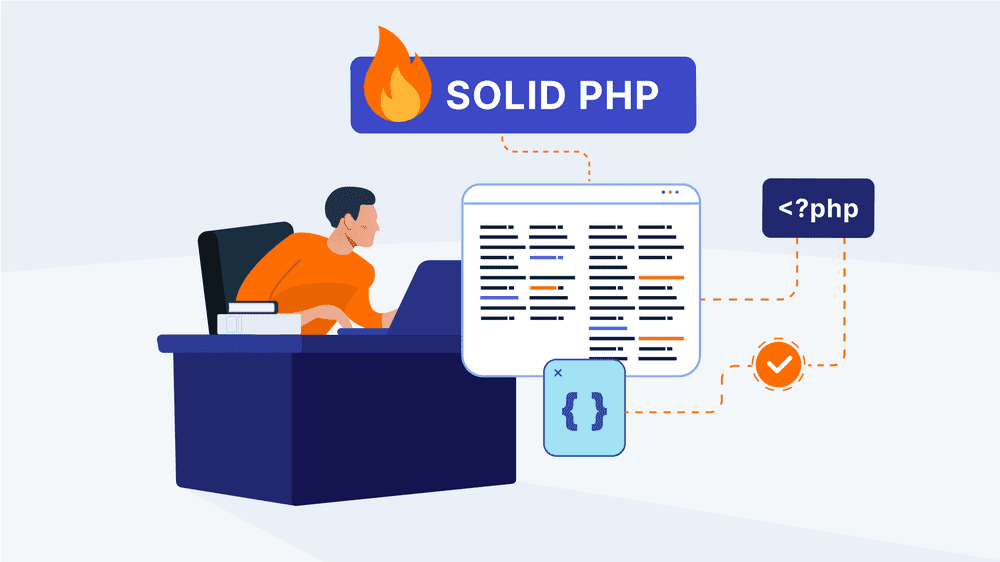Unlocking Faster Execution with PHP OpCode Caching for PHP Performance
I've always been on the lookout for ways to optimize my projects and improve performance. Over the years, I've witnessed PHP and PHP performance evolve, incorporating innovative techniques to ensure efficient execution. OpCode caching is one such method that I've seen transform PHP performance.
PHP, a widely-used scripting language for web development, has seen continuous improvements over the years to enhance its performance. One such technique that has been implemented to speed up PHP execution time is OpCode caching.
In this article, we will discuss the benefits of OpCode caching, how it works in PHP 8.x and the latest PHP version, benchmark tests and results, and how it relates to PHP 8.x performance improvements.
Benefits of OpCode caching for PHP performance
The use of OpCode in the PHP execution process enables a more efficient and scalable approach to script execution. By transforming PHP code into a series of low-level instructions, the PHP engine can process scripts more rapidly than interpreting human-readable code directly while enhancing PHP performance tuning in the latest PHP version.
This is particularly beneficial for complex application code or high-traffic websites and high memory usage, where rapid response times and efficient resource management are critical for a positive user experience.
Moreover, the optimization provided by OpCode plays a significant role in the scalability of PHP application, dynamic web pages and boost PHP performance. As a PHP application code grows and handle more concurrent users, parsing and compiling scripts for every request becomes increasingly resource-intensive, potentially leading to performance bottlenecks and slower response times.
By storing the compiled OpCode in shared memory and reusing it for subsequent requests, OpCode caching helps address these scalability concerns, allowing applications to handle higher traffic loads with fewer resources.
What other perks does OpCode provide?
OpCode caching not only benefits PHP's runtime performance but also streamlines the development and deployment process. With OpCode caching in place, developers can focus on writing efficient, human-readable PHP code without worrying about the low-level details of OpCode generation and optimization. This abstraction simplifies the development process and allows developers to concentrate on application logic and functionality.
Additionally, OpCode caching contributes to a more straightforward deployment process. When deploying a PHP application, the server automatically generates and caches OpCode, requiring minimal manual intervention.
This automated process reduces the chances of deployment errors and ensures a smoother transition from development to production environments. By handling OpCode generation and caching behind the scenes, PHP code enables developers to focus on delivering high-quality applications, while the PHP engine takes care of performance optimization at the OpCode level.
Importance of OpCode Caching
In today's digital landscape, web applications and web server architectures are becoming increasingly complex, feature-rich, and interactive. These modern applications often rely on sophisticated server-side processing to deliver dynamic content and personalized experiences. OpCode caching is essential in this context, as it helps ensure that server-side processing can keep up with the demanding requirements of contemporary web applications.
By eliminating the need to repeatedly parse and compile PHP scripts, OpCode caching enables web servers to focus their resources on delivering high-quality, dynamic content at scale. This performance boost is critical for supporting the advanced features and rich user experiences that define modern web applications.
Here's an expanded explanation for each stage.
Stage 1: Parsing OpCode Caching for PHP
In the parsing stage, the PHP interpreter reads and analyzes the PHP script, breaking it down into individual components, such as variables, functions, and control structures. These components are then transformed into a series of tokens. Tokens are the fundamental building blocks of a program's source code, enabling the PHP engine to understand the syntax and structure of the script. The parsing stage plays a critical role in detecting and reporting any syntax errors or inconsistencies in the PHP code.
OpCode caching interacts with the parsing stage by ensuring that the results of this process are not discarded after each script execution. Instead, the precompiled script bytecode (OpCode) generated after the parsing and compilation stages is stored in shared memory. This enables the PHP engine to bypass the parsing stage for subsequent requests, as the script has already been analyzed and transformed into tokens.
The interaction between OpCode caching and the parsing stage leads to significant performance improvements for PHP applications. By retaining the results of the parsing stage, OpCode caching eliminates the need to repeatedly parse the script for each incoming request, reducing the overhead associated with processing the PHP code.
Stage 2: Compilation of OpCode for PHP performance
After the parsing stage, the tokens are compiled into OpCode (short for operation code). OpCode is a series of low-level instructions that the PHP engine can understand and execute.
The compilation process involves converting the tokens, which represent the syntax and structure of the PHP script, into a more efficient, machine-readable format. This transformation is crucial for optimizing the execution of the PHP script, as it allows the PHP engine to process instructions directly, rather than interpreting human-readable PHP code.
The OpCode compilation process plays a significant role in enhancing PHP performance for several reasons. First, by generating a series of low-level instructions, OpCode allows the PHP engine to process scripts more rapidly on the web server and efficiently than if it were interpreting the source code directly. This results in faster script execution times, which translates to improved server response times and an enhanced user experience.
Second, OpCode compilation contributes to more efficient resource utilization. By converting PHP into a format optimized for execution, the PHP engine can minimize the resources required for processing requests, such as CPU time, boost PHP performance, and memory usage.
This optimization enables web servers to handle more simultaneous connections and deliver content more quickly, which is particularly beneficial for high-traffic websites and complex applications.
Stage 3: Execution of PHP
The final stage in the PHP script execution process is the execution of the generated OpCode. In this stage, the PHP engine interprets the OpCode and performs the operations specified in the instructions to boost PHP performance. This execution process can involve a variety of tasks, such as interacting with database queries, processing input data from users, performing calculations, or generating HTML output to be displayed on a web page.
As the PHP engine executes the OpCode, it produces the desired output, effectively transforming the PHP script's instructions into tangible results. This process is responsible for bringing the application to life, delivering the dynamic content and functionality that users interact with.
During execution, the PHP engine may also interact with other components of the web application, such as external APIs, storage systems, or other services, and web server to fulfill the script's requirements.
The execution stage's efficiency is critical for ensuring a smooth and responsive user experience. By processing the OpCode, which is a series of low-level instructions optimized for rapid interpretation, the PHP engine can execute scripts more quickly and efficiently than if it were interpreting human-readable source code directly.
This improved PHP performance efficiency, combined with OpCode caching's ability to bypass the parsing and compilation stages, results in a highly optimized PHP execution process that enables web applications to deliver dynamic content and rich user experiences with minimal latency and resource overhead.
OpCode cache kicks in after execution of PHP for performance
OpCode caching becomes active after the compilation stage. Once PHP code is compiled into OpCode, the caching mechanism stores this compiled OpCode in shared memory, enabling faster access for subsequent requests. This process helps optimize performance by reducing the time spent on compilation for each new request.
Before OpCode caching was introduced, PHP had to undergo the entire process of parsing, compiling, and executing scripts for each request. This procedure was resource-intensive and time-consuming, particularly for complex scripts and high-traffic applications. OpCode caching is crucial because it addresses this performance bottleneck by caching the compiled OpCode, allowing the PHP engine to bypass the parsing and compilation stages for later requests.
The benefits of OpCode caching
OpCode caching is an essential optimization technique for PHP applications, offering numerous advantages that contribute to improved performance, resource management, and user experience, and is one of the recommended PHP performance tuning tips.
Some of the key benefits of OpCode caching includes the following.
Reduced server load and demand on the database
OpCode caching achieves reduced server load by storing the compiled OpCode in shared memory after the parsing and compilation stages. By doing so, it eliminates the need to repeatedly parse and compile PHP for each incoming request.
This process significantly reduces the server load, as the PHP engine can directly access and execute the OpCode without incurring the overhead associated with parsing and compilation.
The reduction in server load directly translates to improved resource utilization, as the PHP engine spends less time and processing power on handling the repetitive tasks of parsing and compiling scripts.
As a result, the server can handle more requests efficiently, which leads to better overall performance and capacity. This increased efficiency allows web servers to accommodate higher traffic volumes, serve more simultaneous connections, and deliver content faster while using fewer resources.
By optimizing resource utilization, web servers may require less hardware and consume less power to achieve the same level of performance. In some cases, OpCode caching can reduce the average script execution time by up to 50%, which contributes to a more efficient server environment, helping organizations save on operational costs.
Faster response times for php performance and reducing speed issues
OpCode caching significantly contributes to faster response times by storing the compiled OpCode in shared memory, allowing the PHP engine to directly execute it instead of going through the parsing and compilation stages for every request. This minimization of processing delays speeds up the overall script execution process, resulting in quicker server responses and boost PHP performance.
This improved responsiveness enhances the overall application performance, making it feel more fluid and efficient. A faster application is more likely to retain users and keep them engaged, as they do not have to wait for slow-loading pages or deal with performance issues.
The PHP documentation emphasizes the advantages of using OpCode caching, stating that it can lead to significant performance enhancements by eliminating the need to repeatedly compile the same PHP code.
Improved php performance and user experience
OpCode caching improves the overall performance of PHP applications by optimizing the script execution process. By storing the compiled OpCode in shared memory and bypassing the parsing and compilation stages for each request, OpCode caching significantly reduces the time and resources required to process PHP scripts.
This optimization allows the application to focus more on delivering dynamic content and handling user interactions efficiently. A smoother and more responsive user experience is a direct result of the improved application performance brought about by OpCode caching.
As the PHP engine can execute OpCode directly, the application can process and respond to user input more quickly, making it feel more fluid and responsive. This heightened responsiveness is particularly noticeable in web applications with complex scripts or high levels of interactivity, where delays in processing can lead to a sluggish and frustrating user experience.
Improved application and tune php performance also has a positive impact on other aspects of the application, such as scalability and reliability.
By optimizing the script execution process, OpCode caching enables web servers to handle a larger number of simultaneous connections and maintain responsiveness even during periods of high traffic or heavy load. This increased capacity allows the application to grow and adapt to the demands of its user base without compromising performance.
OpCode Caching: An Improvement Over Past Practices
In the past, prior to OpCode caching, PHP developers relied on alternative caching mechanisms, such as:
Userland Caching pros and cons
Userland caching refers to the practice of developers manually implementing caching mechanisms within their PHP code and PHP performance. In this approach, the results of costly operations are stored in files or database queries, allowing the application to avoid redundant calculations or resource-intensive tasks on subsequent requests.
Userland caching can improve the performance of PHP applications by reducing the load on the server and minimizing response times.
However, userland caching has its drawbacks for PHP performance.
One of the main challenges is the need for careful cache invalidation design and management. Developers must ensure that cached data remains up-to-date and is invalidated when it becomes outdated or irrelevant. This can add complexity to the codebase, as developers need to handle various caching scenarios and manage the cache's lifecycle.
Another disadvantage of userland caching is that it focuses on caching application-level data or results, but it does not address the parsing and compilation overhead inherent in PHP script execution.
This means that even with userland caching in place, PHP applications may still experience performance bottlenecks due to the script execution process.
External Caching Solutions pros and cons
External caching solutions, such as Memcached or Redis, provide another means of caching for PHP applications.
These tools are designed to store the results of resource-intensive operations, like database queries or complex calculations, in a fast and efficient manner. By caching these results, external caching solutions can help reduce the load on servers and improve application performance.
However, external caching solutions do not directly address the parsing and compilation overhead in PHP script execution.
While they can improve the performance of resource-intensive tasks or data retrieval, they do not optimize the script execution process itself. This means that even with external caching solutions in place, the PHP engine may still spend time parsing and compiling scripts for each request.
Moreover, integrating external caching solutions with PHP applications can be challenging, as developers need to configure and manage the connection between the application and the caching system. This can add complexity to the application's architecture and require additional maintenance efforts.
How OpCode challenges old methods
By utilizing OpCode caching, you can reap the following benefits:
Faster Page Load Times
OpCode caching has a significant impact on page load times by optimizing the PHP script execution process. By storing the compiled OpCode in shared memory and bypassing the parsing and compilation stages, OpCode caching enables PHP applications to load and display web pages faster.
This reduction in load times directly translates to an enhanced user experience, as visitors can access and interact with the website's content more swiftly, without having to wait for slow-loading pages.
Reduced Server Load
One of the key benefits of OpCode caching is its ability to reduce server load. By eliminating redundant parsing and compilation, OpCode caching significantly decreases the server's CPU, memory usage, database queries and load.
This optimized resource utilization not only contributes to a more efficient server environment but may also help lower operating costs. By reducing the overall server load, OpCode caching allows servers to handle more requests efficiently, ensuring better performance and reliability for PHP applications.
Improved Scalability
Quicker execution times, brought about by OpCode caching, enable PHP applications to accommodate more concurrent users and higher request rates.
This improved scalability is essential for growing applications that need to handle increased traffic and user demand without compromising performance. OpCode caching allows PHP applications to maintain responsiveness even during periods of high traffic or heavy load, ensuring a consistent and reliable user experience.
Simplified Development
OpCode caching simplifies the development process by allowing developers to focus on writing clean and efficient code rather than dealing with complex caching mechanisms.
With OpCode caching in place, developers no longer need to manually implement userland caching or integrate external caching solutions to optimize performance.
Instead, they can concentrate on the core functionality and features of the application, knowing that OpCode caching will handle the micro optimization of the script execution process. This streamlined development approach can lead to more maintainable and manageable codebases, ultimately resulting in more robust and efficient PHP applications.
OpCode caching in PHP 8.x
PHP 8.x brings several enhancements to OpCode caching through the built-in OPcache extension. The OPcache extension is included by default starting with PHP 5.5, but it has undergone multiple improvements in PHP 8.x, making it more efficient and better integrated with the latest PHP features.
Enabling and Configuring OPcache in PHP 8.x
To enable OpCode caching in PHP 8.x, ensure the OPcache extension is installed and enabled.
You can check this by looking for the Zend OPcache section in the output of the phpinfo() function or by running the command php -m | grep opcache. If it is not enabled, you can follow the official PHP documentation to install and enable it.
Once OPcache is enabled, you can configure its settings by editing the php.ini file. Some of the key configuration options include:
- opcache.enable: Set to 1 to enable OpCode caching.
- opcache.memory_consumption: Determines the memory size (in MB) allocated for storing compiled OpCode. Adjust this value based on your server's resources and application requirements.
- opcache.internedstringsbuffer: Sets the memory size (in MB) allocated for storing interned strings, which are immutable strings shared across multiple PHP scripts to save memory.
- opcache.maxacceleratedfiles: Specifies the maximum number of PHP files for which OpCode can be cached. Set this value based on the number of PHP files in your application.
A full list of OPcache configuration options can be found in the official PHP documentation.
PHP 8.x OPcache Improvements
In PHP 8.x, several enhancements have been made to OPcache, including:
- Improved performance: With the optimization of OPcache's performance in PHP 8.x, developers can expect even faster script execution times and enhanced memory management, contributing to the overall efficiency of their PHP applications.
- JIT (Just-In-Time) compilation: PHP 8.x introduces JIT compilation, which further optimizes the performance of PHP applications by converting frequently executed OpCode into native machine code. This feature works in conjunction with OPcache to deliver substantial performance gains for certain use cases.
By leveraging the OPcache extension and its improvements in PHP 8.x, developers can experience significant performance gains, reduced server load, and improved scalability for their PHP applications.
Kinsta PHP Benchmarks
Kinsta conducted a series of PHP benchmarks to compare the performance of different PHP versions, including PHP 7.4 and PHP 8.0. Their benchmark tests focused on popular content management systems (CMS) such as WordPress, Drupal, and Joomla, as well as PHP frameworks like Laravel and Symfony. The tests were designed to measure the impact of PHP version upgrades on real-world applications and performance upgrades brought about by OpCode caching.
Test Setup:
- The tests were performed on Kinsta's hosting infrastructure using an isolated environment to ensure accurate results.
- Each CMS and PHP framework was tested with PHP 7.4 and PHP 8.0, with the OPcache extension enabled.
- The performance metric used for comparison was the number of requests per second (RPS).
Results:
- WordPress: The benchmark results showed a 7.2% improvement in requests per second - RPS - when upgrading from PHP 7.4 to PHP 8.0. WordPress performance benefited from the enhancements in PHP 8.0 and the improved OpCode caching.
- Drupal: The tests revealed a 14.7% improvement in RPS when upgrading from PHP 7.4 to PHP 8.0. Drupal experienced a significant performance boost due to the PHP 8.0 upgrade and OpCode caching improvements.
- Joomla: The benchmark results demonstrated a 5.5% improvement in RPS when upgrading from PHP versions 7.4 to PHP 8.0. Joomla's performance was positively impacted by PHP 8.0 and the OpCode caching enhancements.
- Laravel: The tests showed an impressive 24.1% improvement in RPS when upgrading from PHP 7.4 to PHP 8.0. Laravel's performance greatly benefited from the new features and optimizations in PHP 8.0, including the improved OpCode caching.
- Symfony: The benchmark results indicated an 11.5% improvement in RPS when upgrading from PHP versions 7.4 to PHP 8.0. Symfony's performance saw a noticeable increase due to PHP 8.0's improvements and the enhanced OpCode caching.
Kinsta benchmark results reveal that upgrading to PHP 8.0 and utilizing OpCode caching can lead to significant performance improvements across various CMS and PHP frameworks. These improvements are primarily attributed to the new features, optimizations, and enhanced OpCode caching in PHP 8.0.
The tests also underscore the importance of keeping PHP applications up-to-date to benefit from the latest performance enhancements. PHP 8.0's improvements, including OpCode caching, translate to faster response times, better resource usage, and improved scalability for web applications.
OpCode Caching and PHP 8.x Synergy for Enhanced Performance
OpCode caching has always played a vital role in improving PHP's performance, and with the release of PHP 8.x, its impact has become even more significant. This section will focus on how OpCode caching works in tandem with PHP 8.x to deliver optimal performance and other enhancements.
Complementing PHP 8.x Optimizations
PHP 8.x introduces several performance optimizations, such as better memory management, reduced function call overhead, and more efficient object handling. OpCode caching complements these improvements by ensuring that precompiled script bytecode is readily available in shared memory, allowing PHP 8.x to capitalize on its inherent performance enhancements and deliver even better performance to applications.
Integration with JIT Compilation
PHP version 8.x introduces Just-In-Time (JIT) compilation, a cutting-edge feature that optimizes the performance of PHP by converting frequently executed OpCode into native machine code. JIT compilation works seamlessly with OpCode caching, as the cached OpCode can be used as the input for the JIT compiler. By combining OpCode caching with JIT compilation, PHP 8.x can provide substantial performance gains, particularly for computationally intensive applications.
Enhanced OPcache Extension
The OPcache extension in PHP 8.x has been refined, offering a more efficient and better-integrated caching mechanism. These improvements to OPcache ensure that OpCode caching remains a powerful performance optimization tool in PHP 8.x, further enhancing the execution of PHP.
Adapting to PHP 8.x Features
PHP 8.x brings a host of new features, such as attributes, named arguments, and the null-safe operator, that streamline the development process and enable cleaner and more maintainable code. OpCode caching, through its improved OPcache extension, ensures compatibility with these new language features, allowing developers to harness their benefits while still reaping the performance gains offered by OpCode caching.
Where to from here with OpCode caching and PHP performance tuning?
OpCode caching is a powerful feature that has contributed significantly to the performance speeds in PHP version 8.x. Upgrading to PHP 8.x and enabling OpCode caching can lead to enhanced performance, faster response times, better resource usage, and improved scalability for web applications.
As a business owner or developer, it's crucial to keep your PHP up-to-date to benefit from the latest performance enhancements. At Accesto, we specialize in bringing existing PHP and JavaScript applications back to technical health, improving their business appeal and user satisfaction. Our expertise includes tuning web performance, scaling web applications, lowering development costs, shortening time to market, improving user experience, securing web applications, ensuring quality & reliability, and maintaining web products.
Are you ready to take your web application to the next level? Contact Accesto today and let us help you harness the power of PHP 8.x and OpCode caching to improve your application's performance, scalability, and user satisfaction.
